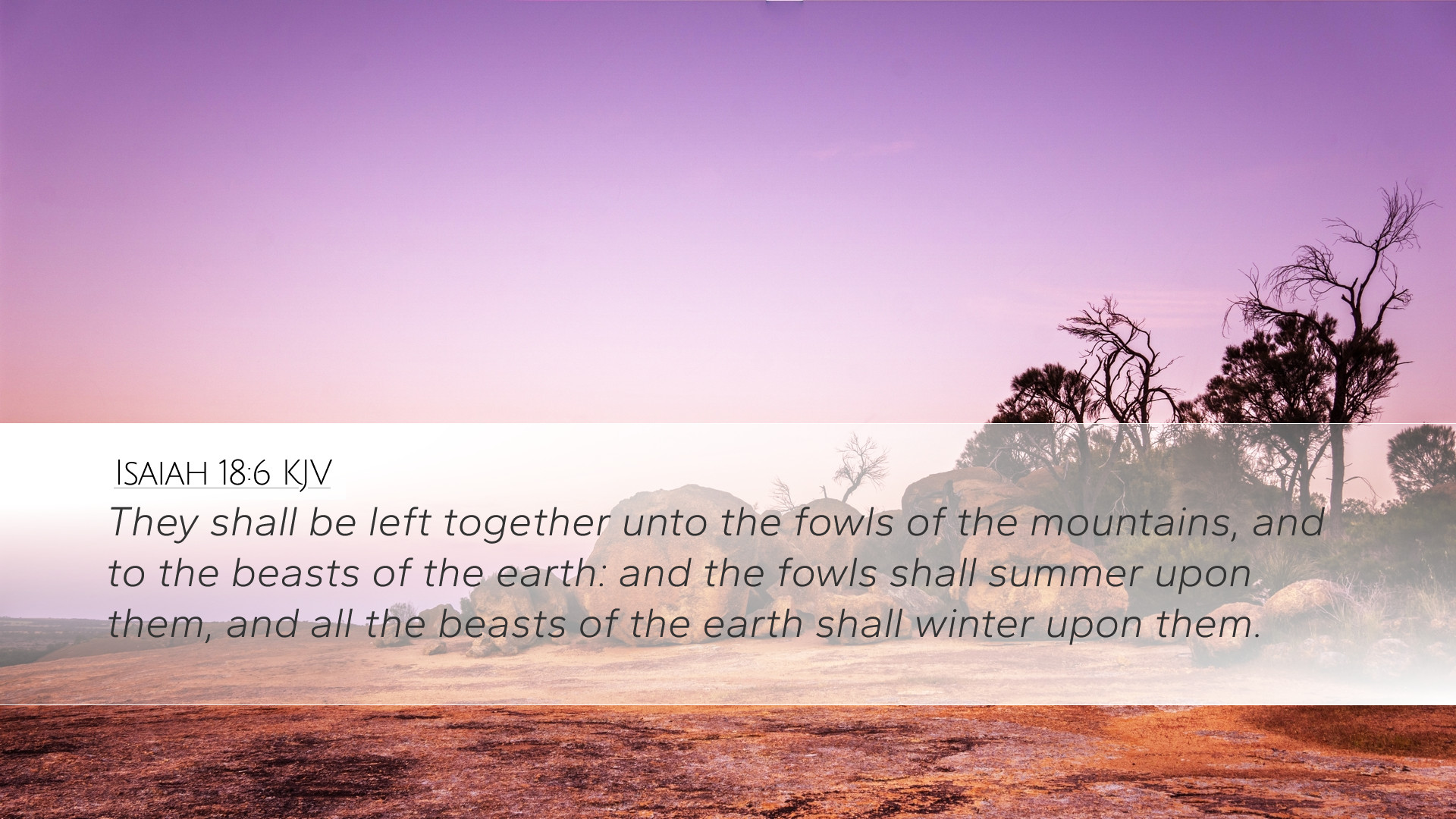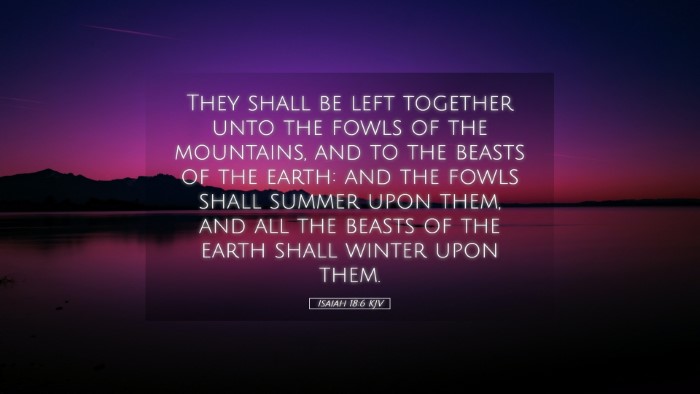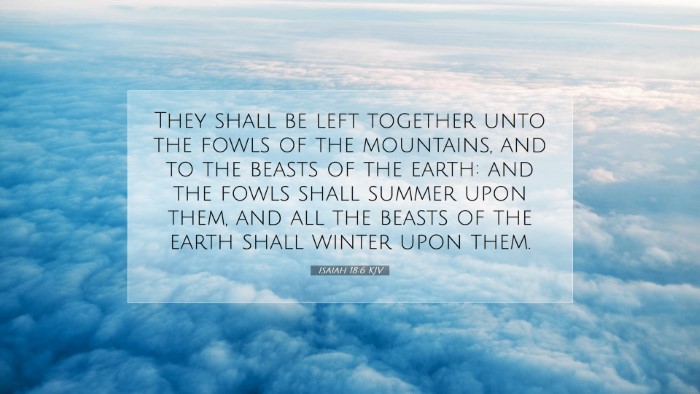Commentary on Isaiah 18:6
Isaiah 18:6 states: "They shall be left together unto the fowls of the mountains, and to the beasts of the earth; and the fowls shall summer upon them, and all the beasts of the earth shall winter upon them." This verse evokes vivid imagery and profound meaning regarding divine judgment and the state of the nations.
Contextual Background
The context of Isaiah 18 is crucial for understanding this verse. It addresses a message concerning Cush (modern-day Ethiopia). Scholars note that Cush had diplomatic ties with Judah during a tumultuous period of Assyrian expansion. Isaiah's prophecy serves to highlight the fate of nations that defy God.
Exegesis of Key Themes
1. Divine Judgment
Matthew Henry emphasizes the certainty of God's judgment upon those who oppose His will. The imagery of fowls and beasts scavenging the remnants of the fallen reflects the ultimate desolation that comes upon nations that reject God's sovereignty. This symbolizes not merely physical destruction but also the spiritual abandonment witnessed when a people turn away from divine truth.
2. The Fate of Nations
Albert Barnes comments on the fate of the Cushites. The abandonment to the beasts underscores the idea that those who are not aligned with God's purposes will face ruin. He points out that being left for the "fowls" signifies a loss of honor and protection, an exposure to disgrace. This serves as a sober reminder to nations of the covenantal implications of their actions.
3. The Image of Scavengers
Adam Clarke draws attention to the scavengers themselves—both fowls and beasts. The act of these creatures feeding on the remains is a metaphor for absolute destruction, reflecting a reality that the people of Cush would no longer have agency or power. Clarke notes that this imagery effectively communicates God's disfavor as the ultimate consequence of sin.
Theological Implications
Isaiah 18:6 carries profound theological implications relevant for modern audiences. It underscores the doctrine of judgment and the reality that nations can fall from divine favor. The persistent biblical reminder is that nations should remain humble before God, recognizing their dependence on His grace.
National Accountability
Every nation must reckon with its moral and spiritual state before God. The fate of Cush is a warning against pride and disobedience. Pastors and theologians may draw from this to encourage congregations to actively support righteousness in their communities.
Hope for Redemption
Despite the dire imagery, this passage also opens up avenues for discussion about redemption. Preaching on such texts should highlight that God's judgment is not arbitrary; it is an outworking of His justice. However, through repentance and humility, nations can seek restoration, drawing a parallel with the broader themes of mercy throughout scripture.
Practical Applications
The lessons embedded in Isaiah 18:6 extend to contemporary believers:
- A Call to National Reflection: Individuals and communities should assess their actions and align them with biblical principles.
- Awareness of Consequences: Understanding that spiritual and moral decay leads to inevitable consequences may guide believers to advocate for righteousness.
- Encouragement in Faith: For those who fear the implications of current state affairs, the reminder of divine sovereignty should bolster faith.
Conclusion
In summary, Isaiah 18:6 is rich in meaning and imagery that speaks to the judgments that befall nations that walk away from God. Public domain commentators provide valuable insights that illuminate this text, serving as a catalyst for deeper theological reflection. As such, it serves as both a warning and an exhortation, urging believers to seek divine favor through obedience and faithfulness.


